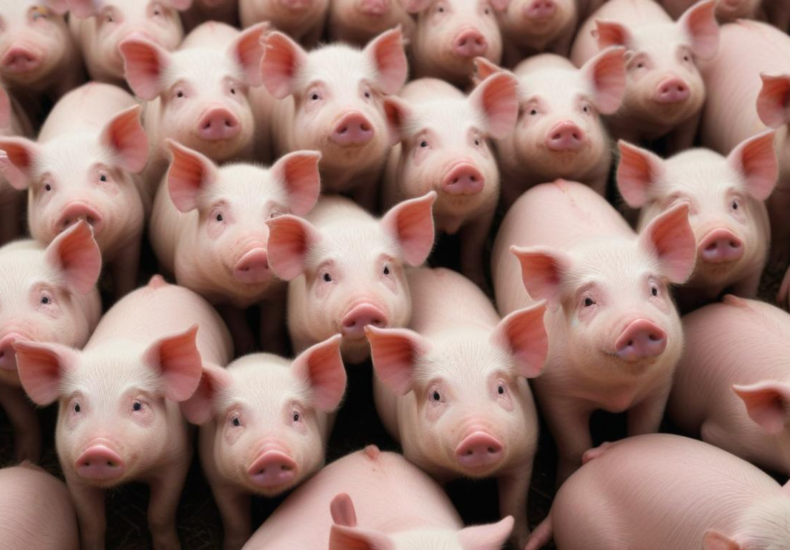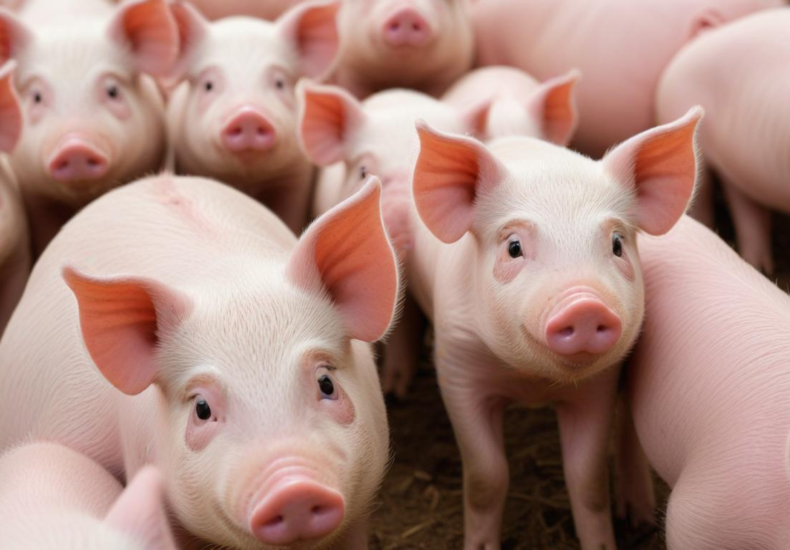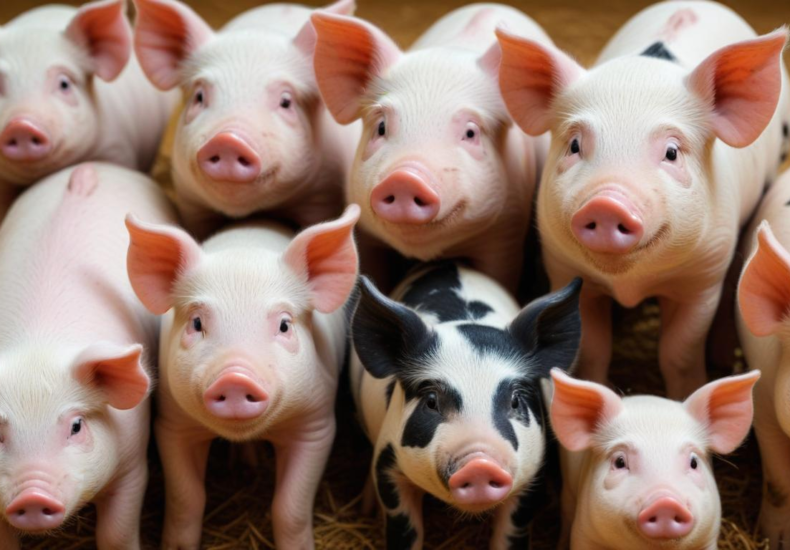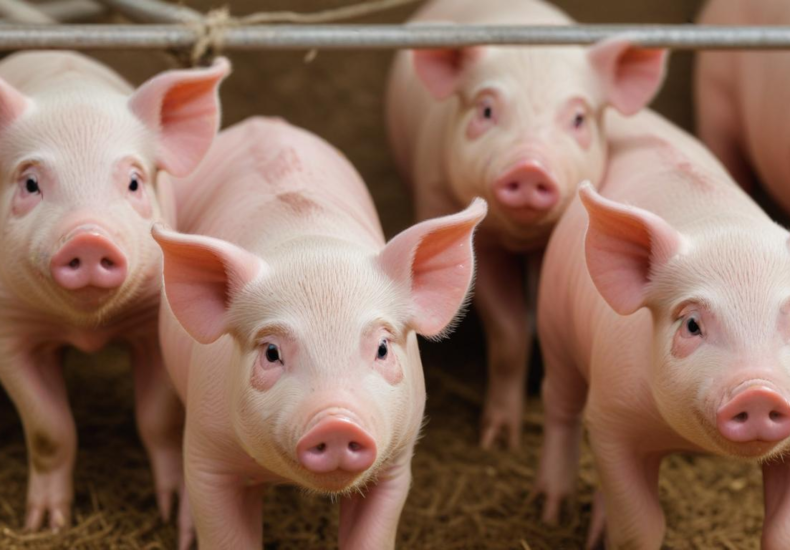Month: April 2025
the impact of genetic drift in pig populations
Genetic drift significantly shapes the genetic structure of pig populations, influencing breeding programs and overall dynamics. This evolutionary mechanism operates through random allele sampling, particularly in smaller groups, leading to genetic variability fluctuations. Environmental factors, disease outbreaks, and human interventions can amplify these effects, potentially diminishing resilience and adaptability. Recognizing the nuances of genetic drift is essential for breeders aiming to maintain robust genetic diversity and ensure the long-term health of pig populations. How can effective management strategies balance these challenges? Explore the intricate dynamics that could redefine breeding practices in the agriculture sector.
how biotechnology aids pig genetic research
The integration of biotechnology in pig genetics is reshaping swine production, enhancing traits such as growth rates, feed efficiency, and disease resistance. Utilizing advanced techniques like genome sequencing and CRISPR technology, researchers are moving beyond traditional breeding methods to develop pigs that can better withstand environmental challenges and genetic diseases. This innovative approach promises to improve overall pork production efficiency while addressing critical concerns in animal welfare and global food security. As advancements continue, the future of pig breeding looks towards sustainability and enhanced productivity.
pig growth rates and genetic influences
The growth rates of pigs are shaped by a myriad of factors, including genetic traits, nutritional requirements, and environmental conditions. Breeding practices focused on specific lines have led to remarkable improvements in daily weight gain, while attentive management of housing, health, and feeding strategies also plays a crucial role. As technology advances, novel methods such as precision livestock farming and gene editing are emerging to further enhance production efficiency and sustainability in pig farming. Explore the intricate connections between genetics, management practices, and the future of swine growth.
genetic techniques used in modern pig breeding
Advancements in genetic technologies are revolutionizing pig breeding, focusing on traits like growth efficiency and disease resistance. Techniques such as genomic selection, marker-assisted selection, and genome editing enable breeders to make precise choices based on DNA analysis. This shift not only enhances productivity and health in pig populations but also aligns with consumer demands for better meat quality and sustainable practices. Explore how these cutting-edge methods are reshaping the future of swine production in an ever-evolving agricultural landscape.
the genetic makeup of different pig breeds
The genetic diversity among pig breeds plays a crucial role in their adaptability and overall performance. Each breed exhibits unique traits influenced by specific genetic variations, affecting characteristics such as growth rate, disease resistance, and reproductive success. With modern advancements in genomics and breeding techniques, there is a growing emphasis on maintaining this diversity while addressing production demands. The intricate balance between traditional practices and innovative technologies is key to ensuring sustainable pig breeding that can thrive under changing environmental and market conditions. Discover the fascinating intersection of genetics and agriculture.
how hybrid vigor improves pig performance
Hybrid vigor, or heterosis, significantly enhances pig farming performance through crossbreeding. By combining diverse genetic backgrounds, hybrid pigs often surpass purebreds in growth rates, feed efficiency, and reproductive performance. They also exhibit increased disease resistance and adaptability to various environments, making them a promising option for producers. Understanding the intricacies of hybrid vigor, alongside effective management practices, is essential for optimizing pig performance and ensuring sustainable production in the agricultural sector. Discover the transformative potential of hybrid breeding for the future of pig farming.
genetic markers for improving pig performance
In swine breeding, the identification of genetic markers significantly transforms traditional practices by pinpointing DNA sequences linked to desirable traits. This advanced approach allows breeders to enhance performance factors such as growth rates, meat quality, and reproductive efficiency while optimizing resources. As genomic technologies evolve, the potential to refine breeding strategies increases, paving the way for more sustainable pork production practices. The implications of these advancements could reshape the swine industry, addressing both productivity challenges and the growing demand for quality meat. Explore the intriguing future of genetics in pig breeding.
advancements in pig genetics for better reproduction
Recent advancements in pig genetics are reshaping breeding strategies, enhancing reproductive efficiency and herd health. Groundbreaking technologies like genomic selection and SNP analysis enable precise identification of traits such as litter size and fertility rates, promoting healthier and more productive pigs. As artificial intelligence and data analytics integrate into breeding practices, producers can make informed decisions that align with sustainability goals. The future of swine genetics promises not only increased profitability but also a profound shift towards more resilient and environmentally friendly farming methods.
why boar genetics are crucial for pig reproduction
The role of boar genetics is crucial in shaping swine production, influencing traits such as fertility, growth rates, and overall herd performance. Key factors like inheritance patterns, genomic selection, and trait heritability are integral for enhancing breeding success. Additionally, understanding genetic diversity helps mitigate inbreeding risks and improve offspring vigor. As advancements in genetic technologies evolve, the future of pig breeding promises innovations that could revolutionize reproductive efficiency and sustainability in the industry. Explore how these developments may redefine swine production practices.








